Opinion
Ayinde Barrister: Prophet without honour (3)
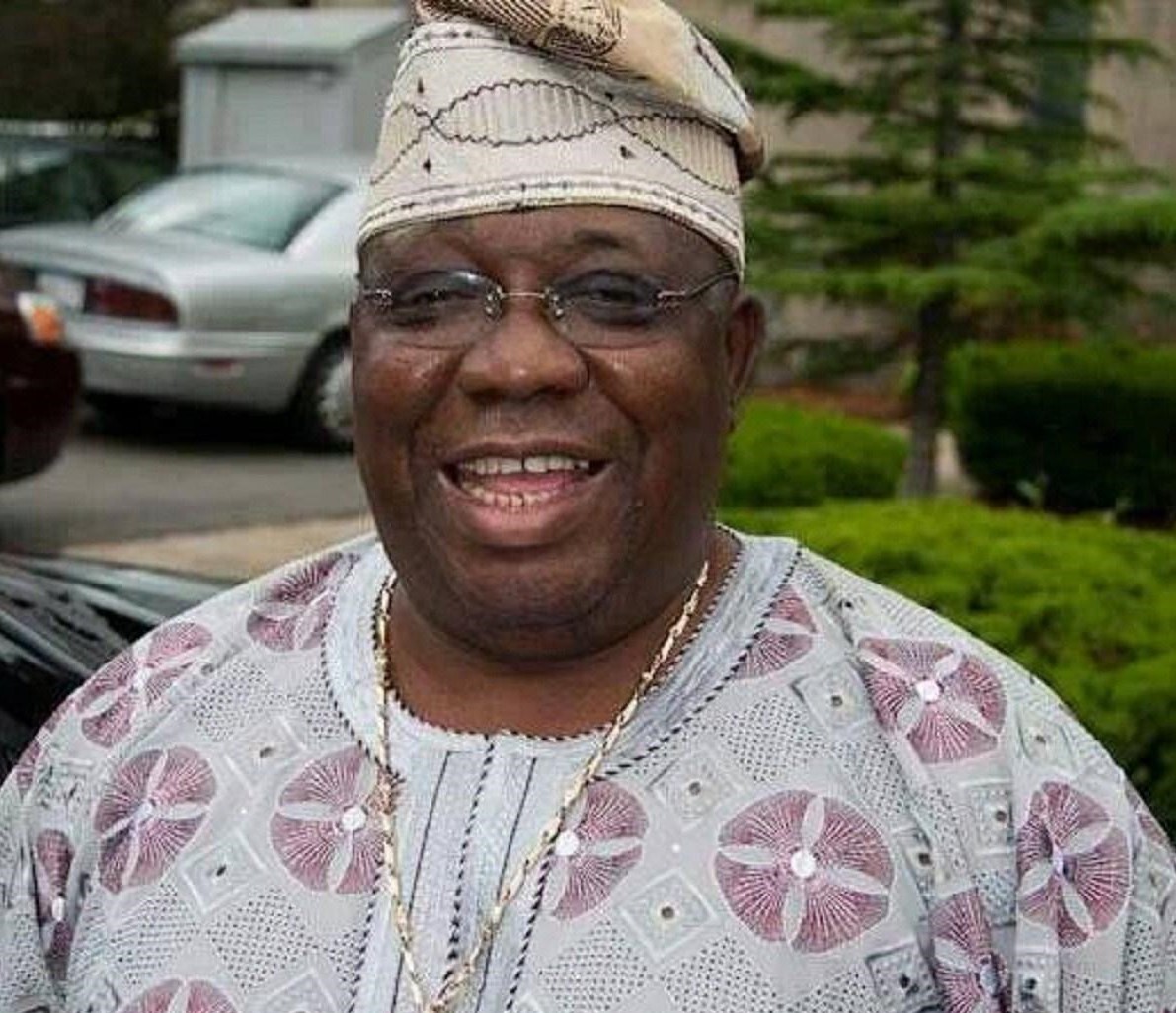
By Tunde Odesola
(Published in The PUNCH on Monday, January 11, 2022)
Birth, breath and death; three seeds cohabiting in the same pod. Birth-breath-death: Sikiru Ayinde Balogun’s earthly journey in a winged chariot driven by fate, fuelled by freewill.
Fatefully, Ayinde was born by a butcher father and a pepper-seller mother. Utterly, he had no say over the spermatic fluid that shot him into existence.
By freewill, Sikiru was a motor-boy, bus conductor, soldier and musician. He could’ve chosen to be a butcher like his father or be the face behind his family’s ancestral masquerade called Adakeja or be a hoodlum in the Ayeye area of Ibadan, a city renowned for robust oratory and notorious free-for-all, ija igboro laarun Ibadan.
When death ransacked Fuji Chamber in Isolo, Lagos, but couldn’t find Ayinde, death mutated into a flight called fate and headed abroad, looking for Sikiru, whom it gripped by the jugular on St Mary’s Hospital bed in London.
Sikiru begged and sang melody to death, but death was deaf. He cried, but death was blood-thirsty, dragging Agbaje along into a dark, endless tunnel without looking back.
Ayinde is the puzzle called Fuji. His voice is the riddle of the yam flour displayed uncovered in the rain and wind, yet unaffected by both elements, but when the yam flour took a dive into hot water, it became amala, ready for gbegiri and ewedu.
If you ever heard the melody of the billowy octopus thumping a piano underwater, you’ll appreciate the mystery of Ayinde’s vocal cords resonating tunefully when singing but the cords stammer when speaking.
It’s the scientific fate of the male octopus to die after fertilising the female’s eggs just as the female octopus dies after giving birth. In the octopean world, live and let die is the mantra. Before Abinuwaye departed the mortal realm and embarked on the journey to Aljanah fridaus, however, he wrote his name in the sands of time with numerous great deeds.
Testifying to Barrister’s humanity, Galala king, Daddy Showkey, said, “Barrister gave me 250 bags of cement and 500 blocks to start the foundation for my first house in Ojodu in the 1990s. Today, I’ve a shrine in my house for Barrister. I put his picture there and pray to his spirit to guide me before I leave home everyday.”
He said, “Wasiu Alabi Pasuma’s wife had a baby boy one day before my wife had a baby girl. On Pasuma’s child christening, I visited his house and asked him why didn’t he invite Barrister to the occasion. Pasuma said Barrister was a busy man, who wouldn’t have time to come for the christening.
“There and then, I went to Barrister’s house. I went straight into Barrister’s bedroom and I told him about the christening of Pasuma’s child. I also told him my own wife had put to bed, too. Barrister gave me N250, 000 and told me to give a higher amount of money to Pasuma. I won’t mention the amount he gave Pasuma because I don’t have his permission to say so.
“I returned to Pasuma’s house and gave him Barrister’s gift. I told him to give me from his own gift and Pasuma gave me N150,000 from Barrister’s gift. On the day of my first child’s naming, Barrister came at night with a cooling van. He also gave me another N250,000 when my wife had our second baby.”
Showkey went on to say that Barrister, in 1994, when he (Showkey) was a nobody, Barrister sang his praise on stage, and when he went on stage to ‘spray’ him, Barrister told him not to, and Barrister, instead, ‘sprayed’ him, and told his manager to give him all the money people ‘sprayed’ Barrister while he (Showkey) was on stage, dancing. Showkey said the money was about N300,000.
Speaking at the inaugural Barry Day celebration organised by Ayinde Barrister Legacy Group, in February 2013, at Sheraton Hotel, Lagos, a former Governor of Ogun State, Chief Segun Osoba, said despite being very close to him, Barrister never came to seek contract from him when he was governor.
All the personalities, whom Barrister praised in his songs, including Alhaji Adisa Onifade, Chief Buhari Oloto, Alhaji Murhi Gbadeyanka, Alhaji Adisa Osiefa, Asiwaju Tunde Khamis Badmus, Chief Abiola Ogundokun, Chief Oyasola Oyadeji, said Ololade sang their praises free of charge.
Mayegun Musulumi of Iwo, Debo Badru, whose father taught young Sikiru the Holy Qoran, in Iwo, said Barrister did what he preached. He said, “I was the Personal Assistant to Governor Adetunji Adeleke in Osun between 1992 and 1993. Barrister was friends with Governor Adeleke since way back in the US. Whenever Barrister had a show in Osun or its environs, he would visit my house. I was very little to Barrister in everything, but he showed me love.
“When he visited one day, I told him that he should let us go and visit his friend, the governor. He agreed. When we got to the governor, they were happy to see one another. The governor pointedly asked him if he was interested in taking contract, but he said no.”
Juju music icon, YK Ajao, who said Barrister bought brand new musical set for him. “He treated me like a younger brother. He gave me money to build my house. I went to his wardrobe to take any kind of clothes I wanted, though his clothes were not my size. He would ensure I play before him so that the people who came to watch him would ‘spray’ me first. I would play for like only 30 minutes, but would make more money than musicians who played all night,” YK Ajao said.
Waka queen, Salawa Abeni, said while she was married to Kollington Ayinla, and lived under the same roof with Baba Alatika, she defied her husband by buying and listening to Barristers songs. “General Kollington would break the disc containing Barrister’s music, I would go and buy another one, he would break it, and I would buy another. From when I was a kid singer, Barrister had taken up the role of father in my life, Salawa said.
The anchor of Oludasile Fuji, a social media group formed in honour of Barrister, Otunba Tokunbo Okunola, said Barrister was clairvoyant. Okunola, whose group conducted interviews for Showkey, Badru, Salawa, and many friends of Barrister, said Barrister would’ve been richer than any African musician if not for his philanthropy.
For someone who has done so much to put an indigenous music on the global entertainment map, Olayimika deserves immortalisation from Nigerian governments at state and national levels.
But Ayinde-Ogun wasn’t an angel, after all. He was a hypocrite who turned the Holy Quran upside down to justify a shameless act after stabbing his bosom friend, Adisa Pele, in the back by marrying Pele’s daughter, Olayinka, who was carried by Barrister during her christening.
Despite his self-professed subscription to the Omoluabi ethos, Barrister shockingly attempted to justify his ignoble act in his 1997 album, Prophecy, by citing unrelated Islamic event, saying his shameful act was similar to what obtained during the time of Prophet Muhammad (SWT).
Pele, the PRO, Ayinde Barrister and his Fuji Organisation, was in the same car with Barrister in 1976 when he had an accident.
Apart from intensive womanising, Barrister also allowed his philanthropy to affect the earnings of his band boys with his attitude of giving all the money generated at shows and parties out to people.
Also, Barrister, who prided himself as singing meaningful songs, temporarily abandoned his style of Fuji to sing lewd Fuji songs called Saje.
Talking about Barrister’s love for the young to grow, Badru recalled that Barrister once had to sing Obesere’s music when fans were leaving his stage. Badru said Barrister’s stage became enlivened after he sang one or two of Obesere’s songs before Barrister went back to his own songs.
This capitulation reflected the dimming of the sun and its journey homeward.
Adieu, Abinuwaye.
Concluded.
Email: [email protected]
Facebook: @tunde odesola
Twitter: @tunde_odesola
Opinion
Tinubu’s Buharization of NNPC By Farooq Kperogi
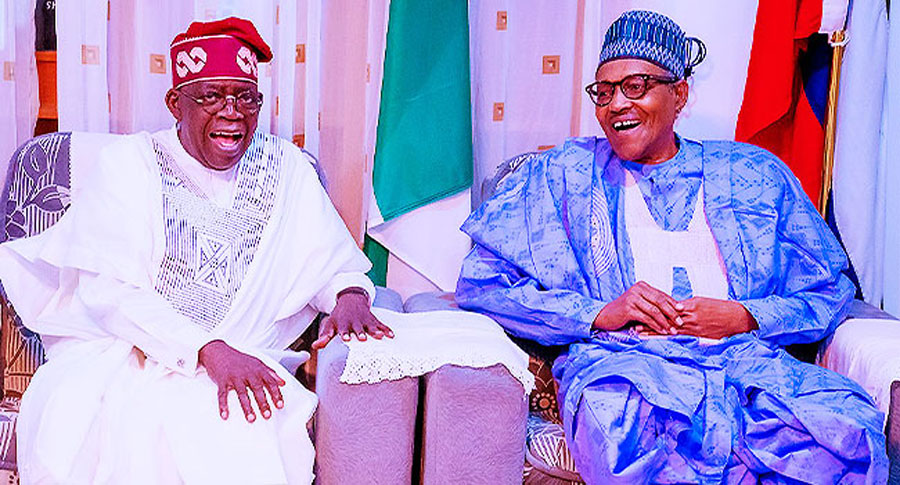
Tinubu’s Buharization of NNPC by Farooq Kperogi
After the sustained, unwarranted personal attacks I endured for eight years from northerners for unswervingly calling out what I called the “embarrassingly undisguised Arewacentricity of Buhari’s appointments” in a February 2, 2019, column titled “Even Ahmadu Bello Would Be Ashamed of Buhari’s Arewacentricity,” I promised that I would look the other way if a southern president returned the favor after Buhari’s tenure.
But promises made in the heat of disillusionment often crumble under the weight of principle.
Ironically, this column was inspired by a well-regarded Yoruba supporter of President Bola Ahmed Tinubu who is worried, in fact embarrassed, by the optics of what he says is Tinubu’s relentless Yorubacentric take-over of the Nigerian National Petroleum Company (NNPC).
His concern wasn’t just partisan discomfort; it was a profound unease about how this nepotistic approach undermines national cohesion.
I frankly hadn’t been paying attention to the internal dynamics at the NNPC, but the acquaintance pointed out that Yoruba people now occupy major positions at the NNPC and that a certain (person) is “being proposed as GMD after Mele Kyari’s term expires” early next year.
I haven’t independently confirmed the accuracy of this claim but given the closeness of the source of information to people in the circles of power, it’s probably best to not dismiss this with the wave of the hand.
His concern is that Tinubu, from the Southwest, is already the minister of petroleum. Senator Heineken Lokpobiri, the Minister of State for Petroleum and Chairman of the NNPC, is from the South-South. Chief Pius Akinyelure from the Southwest is NNPC’s Non-Executive Board Chairman.
READ ALSO:
- Lagos Imam to Tinubu: You haven’t disappointed us
- Ronaldo, Vinicius, Yamal win big at 2024 Globe Soccer Awards [Full list of winners]
- Vinicius should have won Ballon d’Or, not Rodri – Ronaldo
The head of the NNPC Upstream Investment Management Services (NUIMS), Mr. Bala Wunti, my acquaintance pointed out, has been replaced by one Seyi Omotowa. Gbenga Komolafe is the chief executive officer of the Nigerian Upstream Petroleum Regulatory Commission (NUPRC), making him the highest-ranking upstream regulator.
“If a Yoruba man were to be the GMD, another Yoruba man is the Chairman, and yet another Yoruba man is the regulator, that’s extreme lopsidedness,” and other parts of Nigeria would be justified to feel uncomfortable, my acquaintance said.
As with issues of this nature, the reality may be more complex that the surface-level impressions that I have been presented with. Of the 12-member non-executive Board of Directors, I counted at least four names that I recognize as northern, and that includes Kyari, the outgoing GMD.
The 7-member Senior Management Team on NNPC’s website has three northerners (if Kyari is included). That seems fair. Plus, Buhari actually appointed many of the Yoruba people in high places at the NNPC. By these metrics, one might argue that there’s a semblance of balance.
However, Tinubu’s broader public image tells a different story. His administration is rapidly cementing a reputation for Yorubacentric provincialism. Like the late Umaru Musa Yar’Adua, who governed Nigeria as if he were still a Katsina governor, Tinubu appears to be governing Nigeria as though he were still the governor of Lagos.
Just like Yar’adua was elected a Nigerian president but operated like a Katsina governor in Abuja, Tinubu is also, so far, a Nigerian president only in name. His mindset is still that of the governor of Lagos.
With a few notable (and in some cases unavoidable) exceptions, Tinubu’s government is largely the re-enactment of his time as the governor of Lagos. It is, for all practical purposes, an unabashed Lagos-centric Yorubacracy.
To be fair, though, with the possible exception of Olusegun Obasanjo’s administration, all civilian regimes since 1999 have been insular ethnocracies.
My source reminded me of a viral social media post I wrote on January 14, 2019, titled “New IGP: Why Progressive Northerners Should be Embarrassed” where I gave four reasons for being insistently censorious of Buhari’s Arewacentric appointments in response to southerners who asked why I was bothered since I was a northern Muslim who was “favored” by such appointments—“favored,” that is, on the emotional and symbolic plane.
READ ALSO:
- Nigeria Customs Service begins 2025 recruitment [How to apply]
- Dangote, Tinubu, Lookman, Badenoch named among 100 most influential Africans in 2024
- Heavy security in Ilesa as ex-Osun deputy gov emerges new Owa-Obokun
I pointed out that I criticized similar such parochial appointments by previous presidents from the South and that it would be hypocritical to look the other way because I was now “favored” by such appointments.
I said people from my region and religion won’t always be in power, and I wanted to be able to stand on a firm moral pedestal when I criticize future presidents who replicate Buhari’s (and previous presidents’) provincialism.
Most importantly, I said, I was personally embarrassed by Buhari’s insularity and that every progressive northerner should be. I described it as the sort of embarrassment you feel when your best friend who thinks highly of your mother visits you in your home and your mother, during a family dinner, gives you a considerably bigger food portion size and choicer pieces of meat than your friend.
“You feel like screaming: ‘Mom, I know you love me, but you’re embarrassing me by showing overt preferential treatment to me in the presence of my friend’,” I wrote.
The Yoruba acquaintance of mine who alerted me to the creeping Yoruba-centric take-over of the NNPC said he was doing so out of a feeling of the same sense of embarrassment that inspired my rage against Buhari’s appointments that favored the North unfairly, especially in the areas of security.
Tinubu is doing in the economy sector what Buhari did in the security sector. The minister of finance, the governor of the central bank, and every other consequential agency in finance is headed by a Yoruba man. I am not sure Nigeria has ever seen this level of extreme, state-sanctioned ethnocentric domination of a critical segment of national life.
Appointing another Yoruba individual as the head of the NNPC would complete what many already perceive as the ethnic capture of Nigeria’s economic nerve center. It would not only cement Tinubu’s image as an insensitive ethnocrat but also exacerbate public discontent and foster deeper divisions in an already polarized nation.
If Tinubu is unaware of this burgeoning perception, he needs to awaken to its reality. Leadership is not just about policies and actions; it’s also about managing optics and inspiring confidence in a nation’s collective identity.
In a September 5, 2015, column titled “Buhari is Losing the Symbolic War,” where I railed against the exclusion of Igbo people in Buhari’s first appointments, I wrote:
“Symbolism isn’t the same thing as substance. Appointing people to governmental positions does nothing to improve anybody’s lot—except, perhaps, the people so appointed and their immediate families.
“Jonathan’s disastrous 5-year presidency couldn’t even bring basic infrastructure like boreholes to his hometown of Otueke, yet his people derive vicarious satisfaction from the fact of his being Nigeria’s former president.
“Human beings are animated by a multiplicity of impulses, including rational and emotional impulses, both of which are legitimate. When we turn on our rational impulses, we may ask: What would appointing an Igbo man as SGF, for instance, do to Igbo people? The answer is ‘nothing.’
“But we are more than rational beings: we are also emotional beings. That’s why people are invested in symbolism. Appointing someone from the southeast or the deep south is merely a symbolic gesture, but it inspires a sense of inclusion in the minds of many people from that region; it serves as a symbolic conduit through which people vicariously connect with the government.”
This cycle of ethnic favoritism must end if Nigeria is to realize its full potential as a nation. To grow and thrive, we need leaders who can transcend the narrow confines of ethnocracy.
We need leadership that embraces diversity and inclusion, not as buzzwords but as guiding principles for governance. Only then can we begin to heal the fractures that divide us and build a nation that serves all its citizens, regardless of ethnicity or region.
Farooq Kperogi is a renowned Nigerian columnist and United States-based Professor of Media Studies.
Tinubu’s Buharization of NNPC by Farooq Kperogi
Opinion
Ademola Lookman showed Davido and Kemi Badenoch that wisdom is not by age – Omokri
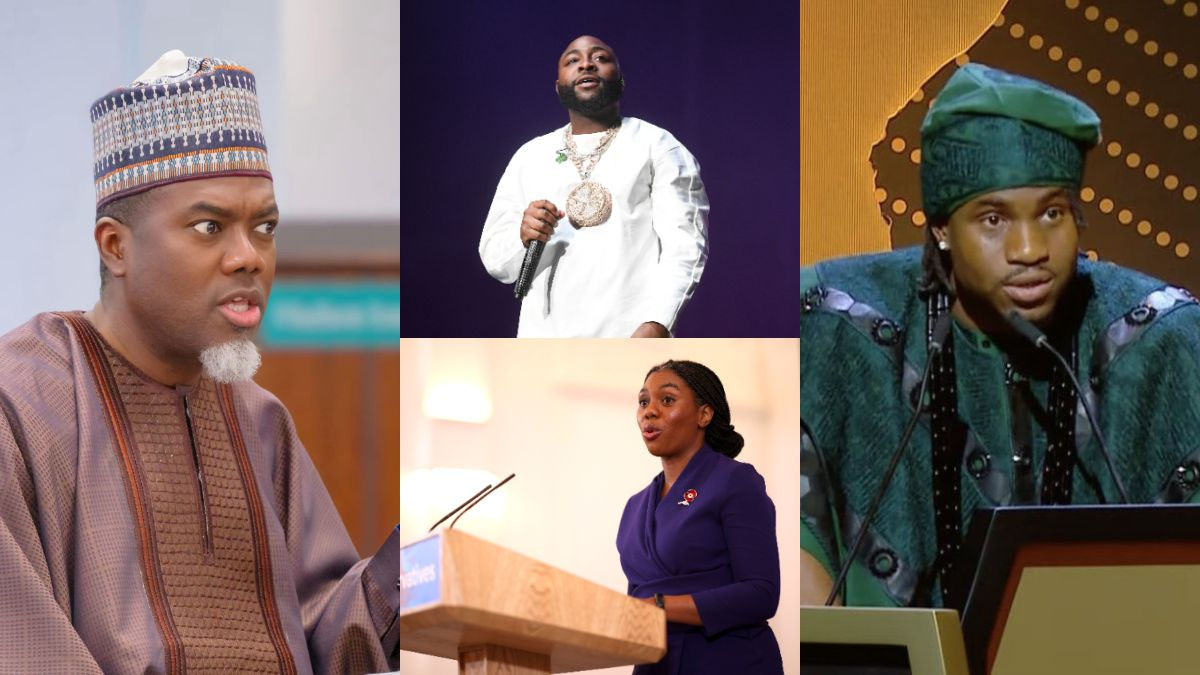
Ademola Lookman showed Davido and Kemi Badenoch that wisdom is not by age – Omokri
Recently, the singer David Adeleke was given a global stage to do whatever he wanted and deliver any message.
Sadly, Mr. Adeleke used the opportunity to speak in an American accent. Not only that, he used that American accent to talk down on Nigeria and tell the world not to invest in Nigeria because, as he put it, Nigeria’s “economy is in shambles”.
Coincidentally, a month after his faux pas, Kemi Badenoch, probably inspired by Davido, used her British accent to talk down Nigeria, calling us “a very poor country” where the police rob citizens.
But the interesting thing about her own case is that the next day, the BBC featured a panel of Conservative Party big shots, and one of them, Albie Amankona, a party chieftain from Chiswick, who is also a celebrity broadcaster, said, and this is a direct quote:
“If you are a Brexiteer, and you are saying we need to be expanding our global trade beyond the European Union, we want to be looking at emerging markets for growth, don’t slag off one of the fastest growing economies in Africa.”
Is it not strange that it took the BBC and a British politician to promote Nigeria as one of the fastest-growing economies in Africa?
And just when we thought it was all bad news, God gave us a breath of fresh air in the youthful Ademola Lookman, who used the global podium granted to him by his winning the 2024 African Footballer of the Year award to promote and project Nigeria and the Lukumi Yoruba language to the world.
READ ALSO:
- MURIC tackles Kemi Badenoch: Can you bring UK police when coming to Nigeria?
- Reps probe $754.2m, N141.6bn tractors, harvesters contract fraud
- Gov Adeleke intervenes in man sentenced to death for stealing fowl (Video)
Wisdom is not by age. If not, Ademola Lookman, who is just twenty-seven, will not have displayed greater wisdom than David Adeleke, who is thirty-two, and Kemi Badenoch, at forty-four.
Mr. Lookman proved that the age of Methuselah has nothing to do with the wisdom of Solomon.
And it is not as though other ethnicities with global icons do not also project Nigeria. They do.
Dr. Mrs. Ngozi Okonjo-Iweala spoke Igbo on the podium of the WTO in Geneva. In terms of prestige, she is FAR above Lookman.
My campaign is not for the Lukumi Yoruba alone. It is for all sub-Saharan Black Africans to learn to speak their language and not use ability to speak English or another colonial language as a measure of intelligence.
Besides Lukumi Yoruba and Hausa, every other Nigerian language, including Fulfulde, is gradually dying out.
General Buhari is half Fulani and half Kanuri. Yet, he cannot speak either Fuifulde or Kanuri. But he speaks Hausa and English.
Fact-check me: In 2012, UNESCO declared Igbo an endangered language.
However, the Lukumi Yoruba are to be commended for their affirmative actions to advance their language and culture.
Let me give you an example. All six Governors of the Southwest bear full Lukumi names: Jide Sanwa-Olu, Seyi Makinde, Dapo Abiodun, Ademola Adeleke, Abiodun Oyebanji, and Orighomisan Aiyedatiwa.
No other zone in Nigeria has all its governors bearing ethnic Nigerian names as first and second names. They either bear Arabic or European names as first names or even first and second names.
If we truly want to be the Giant of Africa, we must take affirmative steps to preserve our language and culture so we can have children like Ademola Lookman.
Teach your language to your children before you teach them English. They will learn English at school. Being multilingual is scientifically proven to boost intelligence.
Fact-check me: In the U.S., Latino kids do not speak English until they start school. They learn Spanish as a first language.
Even if you relocate to the UK, the best you can be is British. You can never be English. And if your choice of Japa is the U.S., the highest you can be is an American citizen. You will never become a White Anglo-Saxon Protestant WASP.
Your power lies in balancing ancient and modern, Western and African, English (or other colonial languages) and your native tongue.
That is the way to reverse language erosion, like the Lukumi Yoruba.
Ademola Lookman showed Davido and Kemi Badenoch that wisdom is not by age – Omokri
Opinion
Kemi Badenoch’s Hate for Nigeria – Femi Fani-Kayode

Kemi Badenoch’s Hate for Nigeria – Femi Fani-Kayode
“I find it interesting that everyone defines me as a Nigerian. I identify less with the country than with my specific ethnic group. I have nothing in common with the people from the north of the country, the Boko Haram, where Islamism is. Being Yoruba is my true identity and I refuse to be lumped with the northern people of Nigeria who were our ethnic enemies, all in the name of being called a Nigerian”- @KemiBadenoch.
Dangerous rhetoric
Kemi Badenoch, MP, the leader of the British Conservative Party and Opposition in the @UKParliament, has refused to stop at just denigrating our country but has gone a step further by seeking to divide us on ethnic lines.
She claims that she never regarded herself as being a Nigerian but rather a Yoruba and that she never identified with the people from the Northern part of our country who she collectively describes as being “Boko Haram Islamists” and “terrorists”.
This is dangerous rhetoric coming from an impudent and ignorant foreign leader who knows nothing about our country, who does not know her place and who insists on stirring up a storm that she cannot contain and that may eventually consume her.
It is rather like saying that she identifies more with the English than she does with the Scots and the Welsh whom she regards as nothing more than homicidal and murderous barbarians that once waged war against her ethnic English compatriots!
All this coming from a young lady of colour that is a political leader in a multi-ethnic, multi-religious and multi-cultural country that lays claim to being the epitome of decency and civilisation! What a strange and inexplicable contradiction this is.
READ ALSO:
- CCT chair removal: Civil groups sue Tinubu, Akpabio, others
- New President-General of Ohanaeze Chukwu to reign for 27 days
- Economy: I derive no pleasure in causing Nigerians pain, says Tinubu
Her intentions are malevolent and insidious and her objective, outside of ridiculing and mocking us, is to divide us and bring us to our knees.
I am constrained to ask, what on earth happened to this creature in her youth and why does she hate Nigeria with such passion?
Did something happen to her when she lived here which she has kept secret?
Kemi Badenoch’s Hate for Nigeria – Femi Fani-Kayode
-

 Auto2 days ago
Auto2 days agoLSM MD extols founder’s qualities after latter posthumous industry award
-

 Business3 days ago
Business3 days agoBe creative, monarch, others challenge Muslim professionals on economic revival
-

 Entertainment2 days ago
Entertainment2 days agoMultiChoice announces free access to all DSTV channels for 3 days
-

 metro3 days ago
metro3 days agoJigawa State governor loses son 24 hours after mother’s death
-

 News2 days ago
News2 days agoNigeria Customs Service begins 2025 recruitment [How to apply]
-

 metro2 days ago
metro2 days agoHeavy security in Ilesa as ex-Osun deputy gov emerges new Owa-Obokun
-

 metro2 days ago
metro2 days agoLagos Imam to Tinubu: You haven’t disappointed us
-

 metro2 days ago
metro2 days agoDangote, Tinubu, Lookman named among 100 most influential Africans in 2024 (Full list)

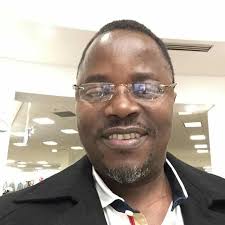

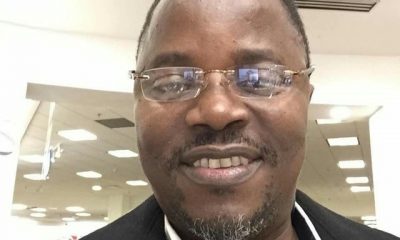


You must be logged in to post a comment Login